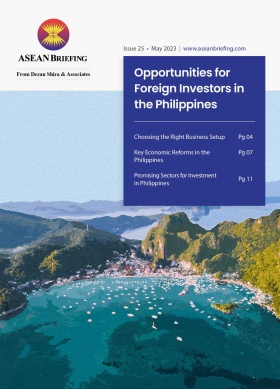Audit and Compliance in Thailand: A Guide for Foreign Investors
Thailand operates a self-assessment tax system with the tax year generally set as the 12-month period ending on December 31. Foreign companies must submit their financial statements no later than 150 days after the end of the fiscal year.
All companies, partnerships, joint ventures, and branches of foreign companies in Thailand must prepare financial statements for their assigned accounting period to the Ministry of Commerce.
Foreign companies (ROs, branch offices, regional offices) must submit their financial statements no later than 150 days after the end of the fiscal year. Once an accounting period is chosen, it cannot be changed unless there is written approval obtained from the Revenue Department.
Audit and compliance are outlined in a number of laws in Thailand. These are:
- The Accounting Act of 2000;
- The Securities and Exchange Act of 1992;
- The Bank of Thailand Act B.E. 2485;
- Insurance Commission Act B.E. 2550; and
- Financial Institutions Business Act B.E. 2551.
Annual general meetings
Companies and partnerships must comply with the requirements set out in the Thai Civil and Commercial Code to hold annual general meetings (AGM).
The board of directors must issue a letter to organize the AGM within four months of the end of the fiscal year. The AGM must be held at least once a year. The AGM should have the following agendas:
- To clarify the minutes of the AGM for the previous AGM;
- Approval of the director’s report on the company’s business activities;
- Acknowledge the company’s operational results from the previous year;
- Select new directors to replace those that have been terminated;
- To appoint an auditor and determination of audit fees; and
- To consider dividends.
Appointing auditors
Financial statements must be examined and certified by an independent certified auditor. The Thai Accounting Professions Act requires all certified public accountants (CPA) to apply the Thai Standards of Auditing. The audit opinion issued by the CPA is required when submitting financial statements and tax returns.
This auditing should be done regardless of whether the company is traded or not. The only exception to this rule is the financial statements of a registered partnership under Thai law, whose total capital, assets, and income are not more than that prescribed in Ministerial Regulations.Fiscal year
Thailand operates a self-assessment tax system with the tax year generally set as the 12-month period ending on December 31. A company, however, can choose its own accounting period as long as it does not exceed 12 months.
If a company chooses its own accounting period, it must inform the Director-General of the Revenue Department. As of April 2020, financial statements must be filed electronically with the Department of Business Development (DBD) of the Ministry of Commerce.
Accounting standards
Under Thai law, a company registered in Thailand, irrespective of whether it is a limited company, a foreign company operating in the country, or a partnership, is obligated to keep its accounts and undertake annual audits.
Companies in Thailand should apply the Thai Financial Reporting Standards (TFRS) in the preparation of financial statements. TFRS has made great strides in harmonization with IFRS in recent years. In addition to International Accounting standards currently pending adoption in Thailand, TFRS also contains many national elements that extend beyond the mandate set by the International Accounting Standards Board (IASB).
Currently, SMEs in Thailand are allowed to use one of the two following standards:
- Thai Accounting Standards (TAS); and
- Thai Accounting Standard for Non-Publicly Accountable Entities (NPAEs).
Foreign companies are permitted to use the IFRS system.
Companies listed on the Thailand Stock Exchange must also prepare financial statements which must also be reviewed by Thai auditors on a quarterly basis.
Annual reports
Limited companies, both public and private, should provide the following documents at the end of each accounting period:
- Company name;
- Type of business;
- Details of directors;
- Audited financial statement;
- Balance sheet;
- Profit and loss accounts;
- List of shareholders, as of the date of the meeting; and
- Minutes of the annual meeting.
For reporting purposes, companies must prepare their documents in the Thai language. While foreign companies may prepare their documents in a language other than Thai, a translation must be attached.
Private and public limited companies must have their financial statements audited at the end of the fiscal year by an independent auditor.
In accordance with the Accounting Act of 2000, businesses are required to retain their books of accounts for at least five years. This may be extended for a period of seven years by the Director-General of the Revenue Department, depending on the business activity.
Penalties for non-compliance
Failure to comply with these regulations may result in a penalty up to 100,000 baht (US$2,848).
If a business underestimates its profits for an entire year by more than 25 percent, it is subject to a 20 percent surcharge is imposed. A surcharge of 100 percent in the case of an incorrect filing and 200 percent in the case of failure to file a return. The penalty can be reduced by 50 percent if the taxpayer submits a written request to the tax officer.
About Us
ASEAN Briefing is produced by Dezan Shira & Associates. The firm assists foreign investors throughout Asia and maintains offices throughout ASEAN, including in Singapore, Hanoi, Ho Chi Minh City, and Da Nang in Vietnam, in addition to Jakarta, in Indonesia. We also have partner firms in Malaysia, the Philippines, and Thailand as well as our practices in China and India. Please contact us at asean@dezshira.com or visit our website at www.dezshira.com.








